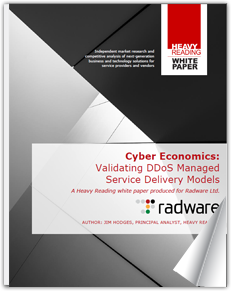Imagine getting online with your doctor on the other end of the streaming connection, and then sending her real-time data of your blood pressure and glucose levels for real-time analysis and consultation. It’s convenient, it’s timely, and it’s altogether probably cheaper than making a visit to the office. But is your information secure? Who else might be snooping on the data you are sending? The risk is probably higher than you think, and the reward for malicious cyber criminals is certainly worth their time and effort.
About a year ago the American Medical Association included security and telemedicine in its list of top issues facing physicians. But it’s not just a doctor issue - add patients, clinics, and hospitals to the list of non-compromising stakeholders. The medical industry, like other industries home to Small-and-Medium businesses (SMBs), needs to be especially sensitive to security requirements that protect patients and themselves against cyber breaches.

[You might also like: Create Trusted IoT, become the King of Sweden?]
Surveys confirm that consumers are increasingly worried about their healthcare information being hacked. Health care providers have historically had to spend little time and effort securing their data. A healthcare ecosystem based on trust, privacy and security is now a must. Verizon’s 2016 Data Breach Incident Report describes healthcare as one of the most affected industries by insider and privilege misuse.
In fact, we have even seen the risk reach national news proportions. On February 8, 2017, The Department of Homeland Security issued an unclassified intelligence brief addressing a recent trend in terrorist attacks, citing possible breaches on hospitals and healthcare institutions – mainly because of their security vulnerabilities.
Healthcare entities have taken small steps in protecting sensitive data, but attacks continue to get more and more complex and can initiate from both the outside and inside of an organization. Just as small enterprises everywhere are searching for ways to shore up their protection and avoid business disruptions, healthcare organizations have an obligation to protect their business and their patients’ sensitive information. Hospitals and doctors’ offices need help keeping their data secure.
Fortunately, service providers are in a prime position to provide these security services to the healthcare industry. Service providers who already are experienced (either by themselves or with partners) in protecting their network infrastructure and offering services to small and medium business can benefit from new revenue streams by offering security solutions to the healthcare sector.

Read "Cyber Economics: Validating DDoS Managed Service Delivery Models" to learn more.
Download Now